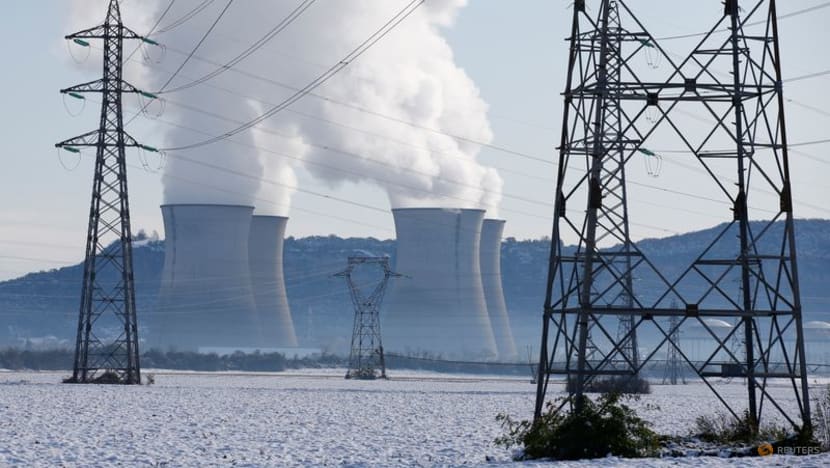‘There aren’t many alternatives’: Growing reliance on nuclear power in France amid energy crunch
Up to 70 per cent of the country's daily electricity needs is supplied by nuclear power.

RIEUX, France: Nuclear energy output has fallen to a 30-year low in France, contributing to an energy crunch that has threatened local businesses and livelihoods.
France relies heavily on nuclear power, which supplies up to 70 per cent of the country's daily electricity needs.
But more than a dozen of its 56 nuclear reactors have been put out of action due to major corrosion issues, as the ongoing war in Ukraine prolongs the energy crisis in Europe.
The French government is nationalising EDF, the firm which runs its nuclear power plants, to build new-generation reactors and also alleviate the debt burden on the company.
THREATENING LIVELIHOODS
Businesses in France have felt the strain from the higher prices, and have been forced to change their work processes or risk shutting down.
For example, baker Julien Pedussel has taken to working under the light of just one lamp during his 18-hour shifts in his Rieux bakery.
As the dough rises, so has his energy bills. The monthly bills have risen by thousands of dollars, costs which are not being met by government support.
“There are people who worked 15 to 20 years in the same business, just to lose everything. I find that so sad and it makes me feel really bad to know that they have worked for nothing,” said Mr Pedussel.
“Even if there is support for now, I’m going to try to keep going so that all their work does mean something.”
Buying bread is part of daily life in France, but making that bread requires energy, which contributes to the bills.
With bakeries at the heart of every French village, it would impact not just them, but the entire community too, if they were to close.

Mr Pedussel does not care if his power comes from a nuclear plant or a wind turbine, for as long as the energy situation continues deteriorating, his business is at risk of closing for good.
In small villages such as Rieux, there is solidarity and the bakery’s need to increase its prices is understood and accepted by customers.
One villager said: “We’d like the government to help small businesses by lowering the electricity bill.”
Another villager said: “We got rid of everything to buy our electricity from somewhere else. But now this costs too much, so we have to backtrack and reopen our nuclear power plants. We can’t do without it, all the small businesses will die without it. But I guess we will see.”
NATIONALISING THE NUCLEAR PLANTS
The French energy sector has been in turmoil in the last year.
EDF faced an unprecedented number of outages last year due to stress corrosion causing cracks in some pipes.
The government hopes that by nationalising the company, it will be able to build new-generation reactors, alleviate the firm’s debt burden, and also allow greater state control of energy supplies.
The nuclear plants are now reopening slowly, with further repairs due to start this month.
EDF aims to deal with all the cracks by the end of this year.
While France is normally Europe's biggest exporter of electricity, it has been importing supplies from its neighbours to get through this winter.
Experts argue that wind and solar are crucial long-term energy solutions, but for France, nuclear remains the only viable path to solving the ongoing energy crisis.
“If we don’t have nuclear power here in France, there aren’t many alternatives,” said energy analyst Annabelle Livet from the Foundation for Strategic Research.
“We can talk about renewable energy options, but right now their production capacity is not sufficient to make up for what we lack from nuclear supplies.”














